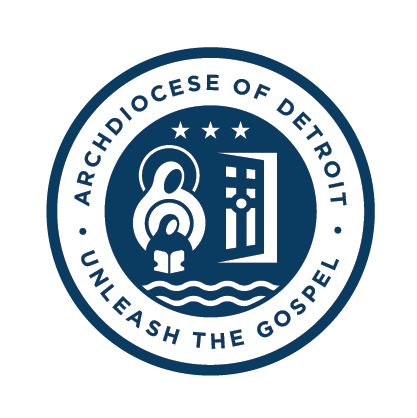Faithful Citizenship
In 2024, as in previous election years, the Archdiocese of Detroit takes its lead from the Michigan Catholic Conference (MCC) and the U.S. Conference of Catholic Bishops (USCCB). Guidelines published by these two organizations clarify the appropriate political and electoral activity for Catholic parishes and organizations in southeast Michigan.
Churches and other 501 (c) (3) institutions that qualify for tax-exempt status under the Internal Revenue Code are not permitted to be involved in partisan politics, including any expressions of preference, support for, or opposition to any specific candidates or political parties.
As this election is expected to be more highly charged and divisive than ever, we must be especially prudent in adhering to the above requirement. To assist in these efforts, the USCCB and MCC provide the following direction:
- Do not endorse or oppose candidates, political parties, or groups of candidates or take any action reasonably construed as endorsement or opposition. (For example, a priest could offer Mass for “all those running for and holding public office” without referencing any candidate(s) or political parties by name.)
- Do not make available the use of church facilities, assets, or members for partisan political purposes.
- Do not authorize distribution of partisan political materials or biased voter education materials (those that support or oppose—or exhibit bias for or against—any candidate or party) on church property, in church publications, or at church activities.
- Do not invite or permit only selected candidates to address your members. Before inviting candidates, make sure such events are consistent with diocesan policy. If so, it is important that all candidates be invited.
- Do share the Church’s teaching on human life, marriage and the family, immigration, education, social justice and peace.
- Do highlight the moral and ethical dimensions of public policy issues and ballot proposals.
- Do urge parishioners to join the party or campaign of their choice and, in light of Church teaching, evaluate candidate positions.
- Do facilitate voter education through the provision of materials only published by the local diocesan bishop, the Michigan Catholic Conference or the United States Conference of Catholic Bishops.
- Do ensure that a “candidate night” or similar event is conducted within the guidelines established for tax-exempt organizations. All candidates for a particular office must be invited to the Church event and absolutely no bias toward a specific candidate or party should be conveyed.
- Do encourage active participation in church-sponsored voter registration efforts, “get-out-the-vote” campaigns, and other non-partisan voter education initiatives.
- Do urge parishioners to register to vote. Registration may be accomplished by means of the internet or through voter registration drives.
- Do take precautions to avoid partisanship. No diocesan or parish entity or organization shall endorse, oppose or campaign for or against any political party or candidate for public office; nor shall any funds of any such entity or organization be contributed to any political candidate, party, campaign or political action committee.
Resources
- Eyes on Jesus Podcast | Faithful Citizenship: With the Nov. 5 election fast approaching, Archbishop Vigneron gives advice to Catholics trying to navigate election season in an increasingly polarized society. He and our hosts draw from the wisdom of the Church and guidance from the U.S. bishops in their discussion about forming consciences, responding to divisiveness, and trusting that “whatever direction the history of the United States takes, ultimately, the Lord is in charge.”
- The USCCB's faithfulcitizenship.org and ciudadanosfieles.org include many resources for parishes, organizations and individuals to help inform and guide us during this election season.
- Of particular note is the bishops' teaching document on the political responsibility of Catholics – Forming Consciences for Faithful Citizenship: A Call to Political Responsibility from the Catholic Bishops of the United States. It urges all the faithful to form their consciences as both faithful Catholics and American citizens with rights and duties as participants in the civil order.
- USCCB: Dos and Don'ts Guidelines During Election Season
- USCCB: Frequently Asked Questions Regarding Political Activities
- MCC's A Catholic Approach to Voting in the 2024 Election reminds us that living a life of discipleship in Christ includes the choices Catholics make when voting and that Catholics should apply the values, morals, and ethics they hold to candidate positions.
- This resource also shares the U.S. bishops’ teachings on conscience formation, provides a brief overview of the Church’s social teachings as they pertain to public policies, and imparts readers with advice to “put on the mind of Christ” and to take time away from social media scrolling and cable news partisanship during this election season to allow more space for prayer and reflection before voting.
- A Spanish version is also available.
- MCC's Political and Electoral Guidelines for Parishes and Organizations seeks to highlight common questions that may arise during an election year, such as parish participation in ballot proposal campaigns. The document also affirms MCC's long-standing guidance on the distribution of election year material in parishes: Parishes are encouraged to share election-year material only if it has been published or approved by the diocesan bishop, MCC, or the USCCB. The purpose for this is to ensure the breadth of Catholic social doctrine is presented to parishioners.
Contact
Individuals with questions or concerns are encouraged to contact us at proffice@aod.org.


